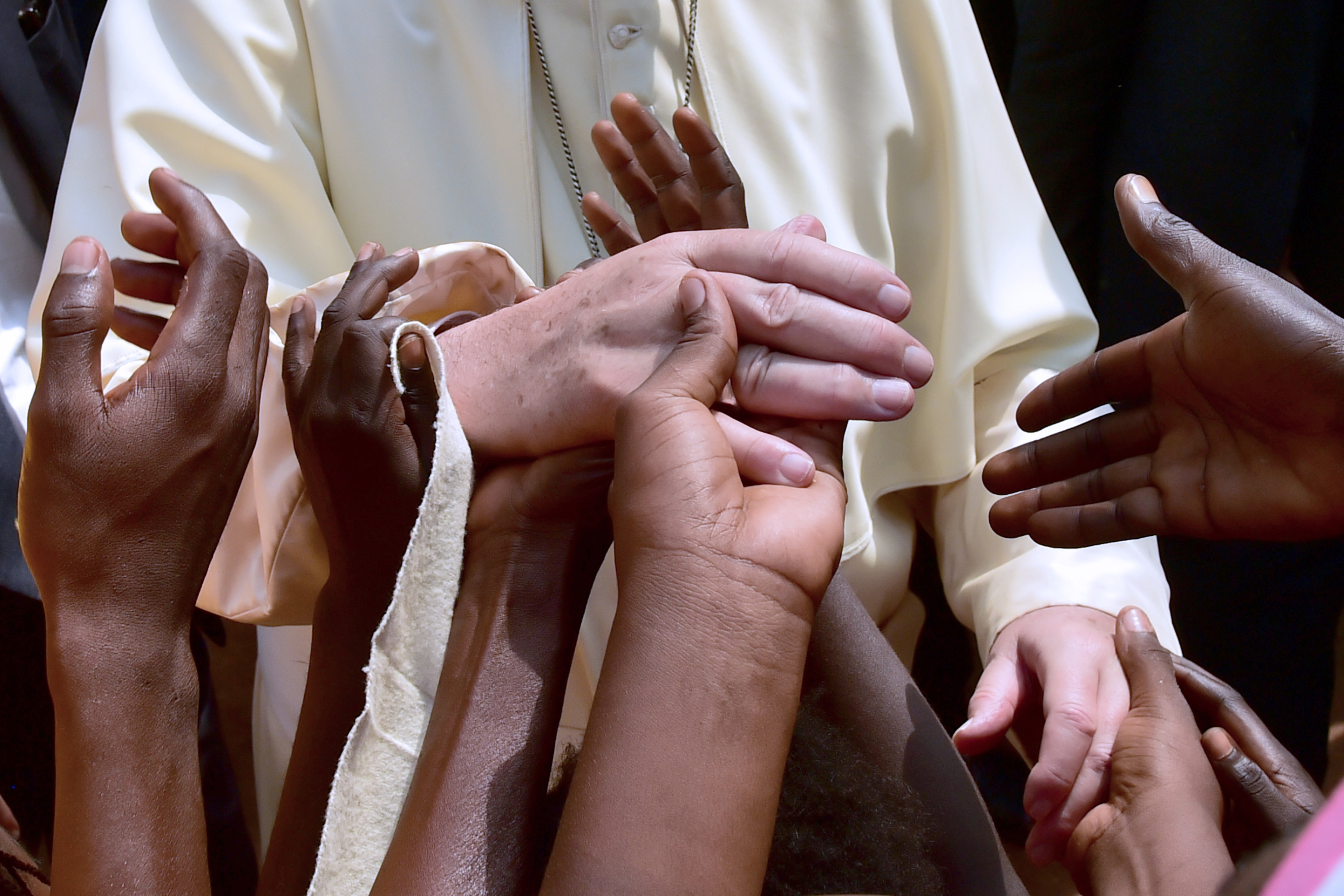The Papal Visit
The apostolic journey to Africa is to a certain extent a metaphor of Pope Francis’ pontificate: an outgoing Church, focused on the peripheries of human existence, with a preferential option for the poor whereby mercy is key to interpret authentic transformations, in the lives of individuals and communities alike

The image is that of the Holy Door that Pope Francis opened in Bangui, capital of the Central-African Republic. Holding hands against tribalism, divisions among ethnic groups – often a cause of major conflicts – in Kasarani, the Republic of Kenya. The testimony of Ugandan martyrs, killed because they were Christian. The apostolic visit to Africa of Pope Francis followed the above-mentioned tracks. To a certain extent, the visit is a metaphor of Pope Francis’ pontificate: an outgoing Church, that focuses on the peripheries of human existence, with a preferential option for the poor, where mercy is key leading to feasible, authentic transformations in the lives of individuals and communities alike.
The image of joined hands in the Kasarani stadium is a message against radicalisms that erect walls, alienate peoples, pave the way to conflicts. There, stands the testimony of those who were not overcome by fear and who instead showed courageous forgiveness and love: the martyrs. Their witness is a message that says that
“faithfulness, honesty, integrity in life bring the peace that the world cannot offer”.
For Francis we must take care of this world, we must be capable to reach out to those who are experiencing difficult situations; to resist the temptation of undertaking short-cuts that lead to prevaricating others. The great obstacle of corruption undermines the common good, excludes others, and it fails to promote human dignity. Corruption, His Holiness reminded the youths gathered in the Kasarani stadium, is like sugar: it is “something that eats us inside, we like it, it goes down easily”. “But then we get sick, we end up as diabetics, and our country becomes diabetic”. Each time we accept a bribe, “we destroy our heart, our personality and our homeland”. It is a significant passage for a continent where far too often corruption has prevented the development of a better future, of a path of reconciliation and peace.
The three nations visited by Pope Francis in different ways experience the difficulties of the entire continent: great riches concentrated in the hands of few; widespread poverty that makes the development process of a people difficult, if not impossible.
Countries with great richness are unable to transform this richness in a process leading to national growth.
Thus the Pope focused specifically on the young, representing a large part of the population, at a time marked by hatred and divisions. There comes the image of those holding hands against tribalism. But above all a message is conveyed with the opening of the Holy Door of the cathedral of Bagui, dedicated to the Immaculate Conception. For the first time a Pope opened a Jubilee outside St. Peter’s. But if passing the Holy Door means passing from a previous to a successive stage, then this is what Francis is asking of Africa, especially to the young:
To leave behind all the negative elements that have blemished the life of their homelands.
To leave behind ethnic and religious divisions and build a future where diversity is richness and a message to others; leaving behind those habits linked to false forms of power; the temptation of revenge, of endless retaliation. The Holy Father called upon young people to be “artisans of forgiveness, specialists in reconciliation, experts in mercy. This is how we can help our brothers and sisters ‘to cross to the other side’”. The Pope thus guarded against those who use the name of God to sow division, violence, war and death. In opening the Holy Door, the Pope recalled “countless men and women’s thirst for respect, for justice, for equality”, and this is true not only for Africa. In every place, “even and especially in those places where violence, hatred, injustice and persecution hold sway, Christians are called to give witness to this God who is love”. To bear witness of “the power of that love which stops at nothing, even before the falling of the heavens, the conflagration of the world or the tumult of the seas”. In this perspective lies the appeal to those “who make unjust use of the weapons of this world”. The appeal is not only to lay down the weapons but “to be armed instead with righteousness, with love and mercy, the authentic guarantors of peace”.